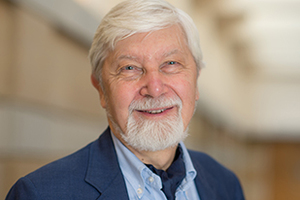
The 2015 Nobel Peace Prize was awarded to the Tunisian National Dialogue Quartet "for its decisive contribution to the building of a pluralistic democracy in Tunisia in the wake of the Jasmine Revolution of 2011."
Peter Wallensteen is the Starmann Professor of Peace Research at the University of Notre Dame’s Kroc Institute and Senior Professor in the Department of Peace and Conflict Research at Sweden’s Uppsala University:
"This is a peace prize for the work of civil society in mediating a national crisis.
The quartet consists of the Tunisian General Labour Union, the Tunisian Confederation of Industry, Trade and Handicrafts, the Tunisian Human Rights League and the Tunisian Order of Lawyers. It was formed in 2013, two years into the revolution, which Tunisians prefer to call the Dignity Revolution. At that time, several prominent human rights advocates had been assassinated and tensions were on the rise. With its broad base, it is likely that the Quartet has contributed to reduced violence and assisted in the promotion of democracy.
It was the events in Tunisia in late 2010 and early 2011 that unleashed the Arab Spring. In Tunisia several hundred people died, though the developments were less violent than in other countries. In 2015 there have been worrying signs in this country, with attacks on tourists and a national museum. The prize may help those civil society groups that work to maintain a steady course towards further democratization of the country.
This year’s Prize is a surprising choice as the Nobel committee has had a tradition of highlighting work on nuclear disarmament on the decennials of the use of nuclear weapons in 1945. Thus in 2005, 1995 and 1985 the prize was given to organizations, individuals or movements working for the reduction and elimination of nuclear weapons. There were similar nominations and worthy candidates this year.
In 2011, the prize was given to a nonviolent activist from Yemen, Ms. Tawakkol Karman. In 2013, the prize was awarded to the Organisation for the Prohibition of Chemical Weapons, the organization that was involved in chemical weapons disarmament in Syria, so this is the third time the award highlights positive developments in otherwise depressive currents in the Middle East after the first promising changes of the Arab Spring."
Contact: Peter Wallensteen, 574-631-0935, wallensteen.4@nd.edu